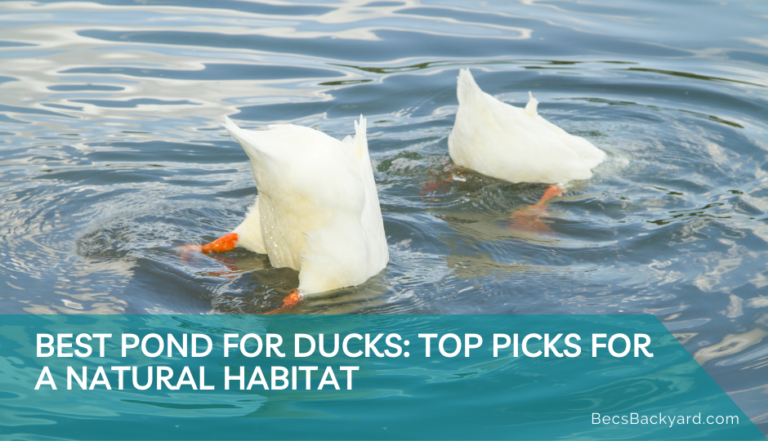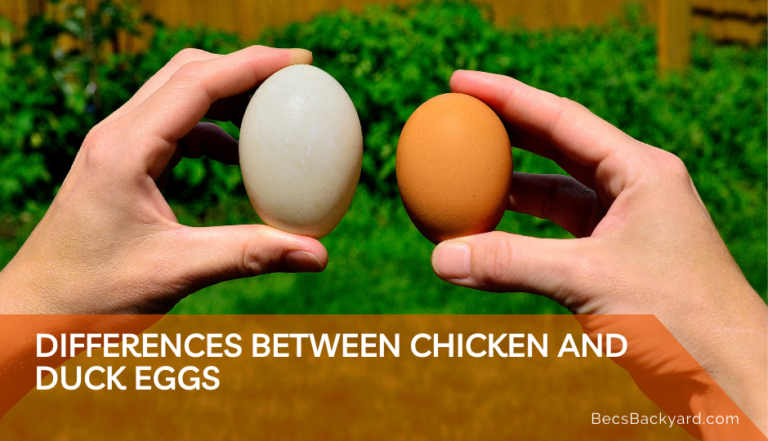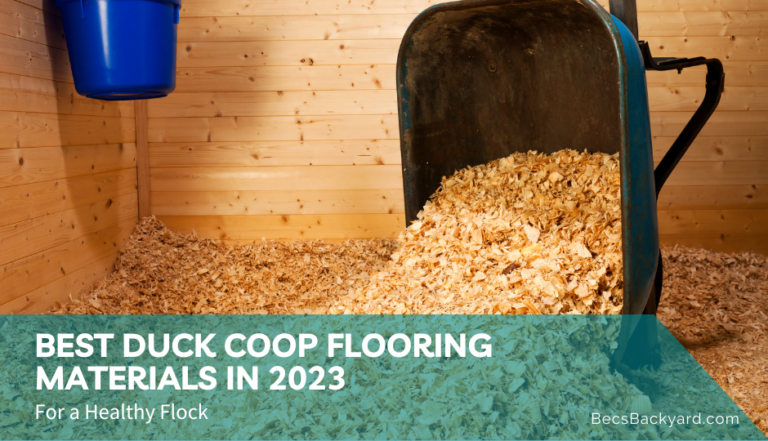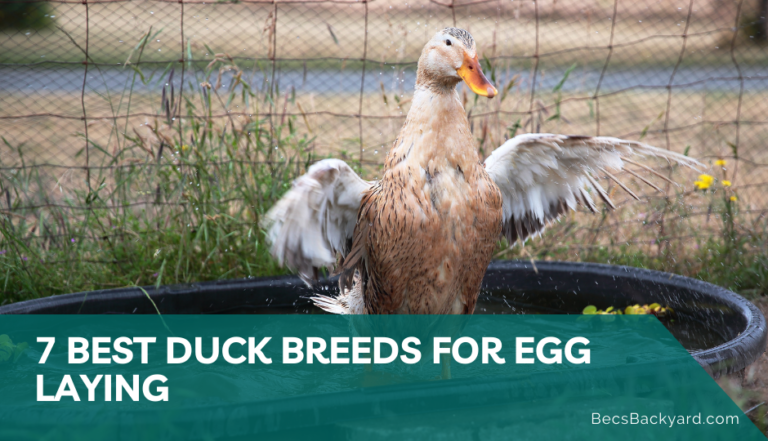Best Foraging Plants for Ducks 2024: Enhance Their Nutrition!
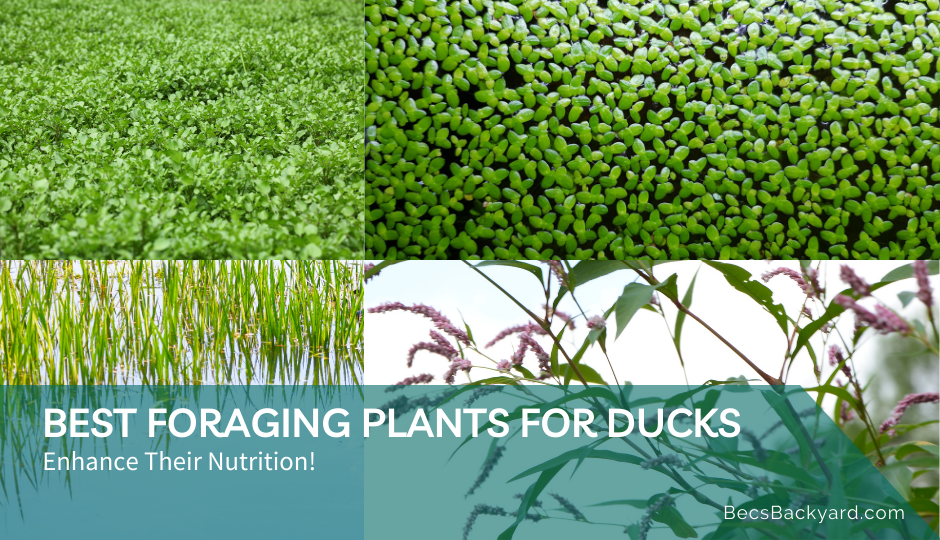
In the world of animal husbandry, providing a well-balanced and nutritious diet for our feathered friends is of utmost importance. Ducks, in particular, are known for their love of foraging and grazing on various plants. Not only does foraging provide them with a natural and instinctive way of obtaining food, but it also offers a range of health benefits.
Best Foraging Plants for Ducks

DUCKWEED this plant can be grown in any container of water. If added to your ducks pond they have the ability to graze on this floating snack
WILD RICE can easily be grown in pots and introduced to your Ducks area
Keep reading this comprehensive guide to get more information on the best foraging plants for ducks, with a focus on enhancing their nutrition. Whether you have ducks in a natural or domesticated setting, knowing which plants are safe and beneficial for them to eat is essential.
Foraging plants play a crucial role in the overall health and well-being of ducks. They provide a diverse range of nutrients, including vitamins, minerals, and antioxidants, which are essential for their growth, immune function, and overall vitality. Additionally, foraging allows ducks to engage in natural behaviors, such as pecking and grazing, which can help prevent boredom and promote mental stimulation.
When choosing foraging plants for ducks, there are several factors to consider. First and foremost, it is important to ensure that the plants are safe for consumption. Some plants may be toxic to ducks and can cause serious health issues or even be fatal. Therefore, it is crucial to do thorough research and consult with experts to identify plants that are safe for your ducks to eat.
Furthermore, it is beneficial to select plants that offer nutritional value. Ducks require a balanced diet that includes a variety of nutrients, such as protein, carbohydrates, fats, vitamins, and minerals. By incorporating foraging plants that are rich in these nutrients, you can help enhance the overall nutrition of your ducks.
In the following sections of this guide, we will explore the best foraging plants for ducks. Each plant is listing showing its nutritional benefits and safety for consumption. By incorporating these plants into your ducks’ diet, you can ensure that they receive a well-rounded and nutritious meal.
Stay tuned for the upcoming sections, where we will delve into the specific foraging plants that are ideal for ducks. Whether you are a seasoned duck owner or just starting out, this guide will provide you with valuable insights to enhance the nutrition of your feathered companions through foraging plants.

Why Foraging Plants are Important for Ducks
Foraging plants play a crucial role in the diet and overall well-being of ducks. Ducks are natural foragers and have evolved to rely on a diverse range of plant species for their nutritional needs. Incorporating foraging plants into their diet not only provides them with essential nutrients but also stimulates their natural behaviors and promotes their overall health.
One of the main reasons why foraging plants are important for ducks is their nutritional value. Ducks require a balanced diet that includes a variety of vitamins, minerals, and other essential nutrients. Foraging plants offer a rich source of these nutrients, including vitamins A, C, and E, as well as calcium, potassium, and iron. By consuming a diverse range of plants, ducks can meet their nutritional requirements and maintain optimal health.
In addition to their nutritional benefits, foraging plants also provide ducks with mental and physical stimulation. Ducks are highly active animals and need opportunities to engage in natural behaviors such as pecking, scratching, and exploring their surroundings. Foraging plants offer a natural and enriching environment for ducks to engage in these behaviors. They can spend hours searching for and consuming different plant species, which not only keeps them physically active but also mentally stimulated.
Foraging plants also contribute to the overall well-being of ducks by promoting gut health. Ducks have a unique digestive system that relies on a balance of fiber and beneficial bacteria to properly break down and absorb nutrients. Foraging plants, particularly those high in fiber, help maintain a healthy gut by promoting proper digestion and preventing digestive issues such as constipation.
Furthermore, incorporating foraging plants into a duck’s diet can also have environmental benefits. Ducks play a vital role in seed dispersal, as they consume seeds from various plants and then spread them through their droppings. This helps in the natural regeneration of plant species and contributes to the overall biodiversity of ecosystems.
In conclusion, foraging plants are essential for the well-being of ducks. They provide ducks with essential nutrients, stimulate natural behaviors, promote gut health, and contribute to the overall biodiversity of ecosystems. By incorporating a variety of safe and beneficial foraging plants into their diet, duck owners can enhance the nutrition and overall health of their feathered friends.
Factors to Consider When Choosing Foraging Plants for Ducks
When selecting foraging plants for ducks, there are several important factors to consider. These factors will help ensure that the plants chosen are safe, beneficial, and provide the necessary nutritional value for the ducks.
1. Safety:
The safety of the foraging plants is of utmost importance. Some plants may be toxic to ducks and can cause serious health issues or even death. It is crucial to research and identify plants that are safe for ducks to consume. Avoid plants that are known to be toxic or have harmful effects on ducks.
2. Nutritional Value:
Foraging plants should provide the necessary nutrients for the ducks’ overall health and well-being. Ducks require a balanced diet that includes proteins, carbohydrates, fats, vitamins, and minerals. Look for plants that are rich in these nutrients to ensure that the ducks are getting a well-rounded diet.
3. Availability:
Consider the availability of the foraging plants in your area. Ducks need a variety of plants to meet their nutritional needs, so it is important to choose plants that are readily available and can be easily accessed by the ducks. This will ensure that they have a diverse diet and can forage effectively.
4. Palatability:
Ducks, like any other animals, have preferences when it comes to taste. Some plants may be more palatable to ducks than others. It is important to observe the ducks’ behavior and preferences when introducing new foraging plants. If they show a strong aversion to a particular plant, it may be best to avoid it and choose alternatives that they enjoy.
5. Seasonality:
Consider the seasonal availability of foraging plants. Some plants may only be available during certain times of the year. It is important to choose plants that are available throughout the year or have a rotation of plants to ensure a consistent food source for the ducks.
By considering these factors, you can make informed decisions when choosing foraging plants for ducks. Providing a safe and nutritious diet through foraging plants will not only enhance their nutrition but also contribute to their overall health and well-being.
Best Foraging Plants for Ducks
| Name | Description of the Plant | Nutritional Value for Ducks | Benefits for Ducks |
| Smartweed | Appearance: Herbaceous plant with slender leaves and spikes of pink or white flowers. Habitat: Wetlands, marshes, and the edges of ponds. Growing Conditions: Thrives in moist, fertile soil. | Nutrients: High in protein, vitamins A and C, calcium, and phosphorus. | Benefits: Supports healthy feather growth, aids in digestion, and boosts the immune system. |
| Duckweed | Appearance: Tiny, floating aquatic plant with round leaves. Habitat: Calm freshwater bodies such as ponds, lakes, and slow-moving streams. Growing Conditions: Prefers still water with plenty of sunlight. | Nutrients: Rich in protein, amino acids, vitamins A and B, iron, and calcium. | Benefits: Provides a highly digestible food source, aids in nutrient absorption, and promotes healthy egg production. |
| Sedges | Appearance: Grass-like plant with triangular stems and clusters of small flowers. Habitat: Wetlands, swamps, and along the banks of ponds and streams. Growing Conditions: Tolerates a range of soil conditions but prefers moist areas. | Nutrients: Contains fiber, protein, vitamins A and C, and minerals like potassium and manganese. | Benefits: Assists in maintaining healthy gut function, supports energy production, and provides essential vitamins and minerals. |
| Watercress | Appearance: Semi-aquatic plant with small, round leaves and white flowers. Habitat: Fast-flowing streams and shallow water bodies. Growing Conditions: Requires clear, cool water with high nutrient content. | Nutrients: High in vitamin C, iron, calcium, and antioxidants. | Benefits: Enhances digestion, boosts the immune system, and aids in maintaining optimal health and vitality. |
| Wild Rice | Appearance: Tall aquatic grass with long leaves and clusters of seeds. Habitat: Shallow freshwater marshes and the edges of lakes and rivers. Growing Conditions: Thrives in water up to three feet deep. | Nutrients: Rich in carbohydrates, protein, fiber, vitamin B6, magnesium, and zinc. | Benefits: Provides energy, aids in healthy metabolism, and supports reproductive health in ducks. |
Please note that the information provided is based on general knowledge about these plants and their benefits for ducks. It’s always recommended to consult with local experts or veterinarians for specific dietary recommendations for ducks in your region.
Conclusion: Enhancing the Nutrition of Ducks through Foraging Plants
Foraging plants play a crucial role in enhancing the nutrition of ducks. By providing a diverse range of plant species for ducks to forage on, we can ensure that they receive a well-balanced diet that meets their nutritional needs.
Foraging plants not only provide essential nutrients but also offer various other benefits to ducks. They help improve digestion, promote healthy gut flora, and support overall immune function. Additionally, foraging plants can provide natural sources of vitamins, minerals, and antioxidants, which are essential for the ducks’ overall health and well-being.
When choosing the best foraging plants for ducks, it is important to consider several factors. First and foremost, the plants should be safe for consumption and free from any toxic substances. It is crucial to research and identify plants that are known to be safe for ducks and avoid any potentially harmful ones.
Furthermore, the foraging plants should be easily accessible and abundant in the ducks’ environment. This ensures that they have a consistent and reliable food source throughout the year. Additionally, incorporating a variety of plants in their diet can provide a wider range of nutrients and flavors, making their foraging experience more enjoyable.
In this guide, we have highlighted the best foraging plants for ducks. These plants have been carefully selected based on their nutritional value, safety for consumption, and availability. Each plant has its unique benefits and can contribute to the overall health and well-being of ducks.
By incorporating these foraging plants into the ducks’ diet, we can enhance their nutrition and support their overall health. However, it is important to note that while foraging plants are beneficial, they should not be the sole source of nutrition for ducks. A balanced diet that includes a combination of foraging plants, commercial feed, and fresh water is essential for their optimal health.

